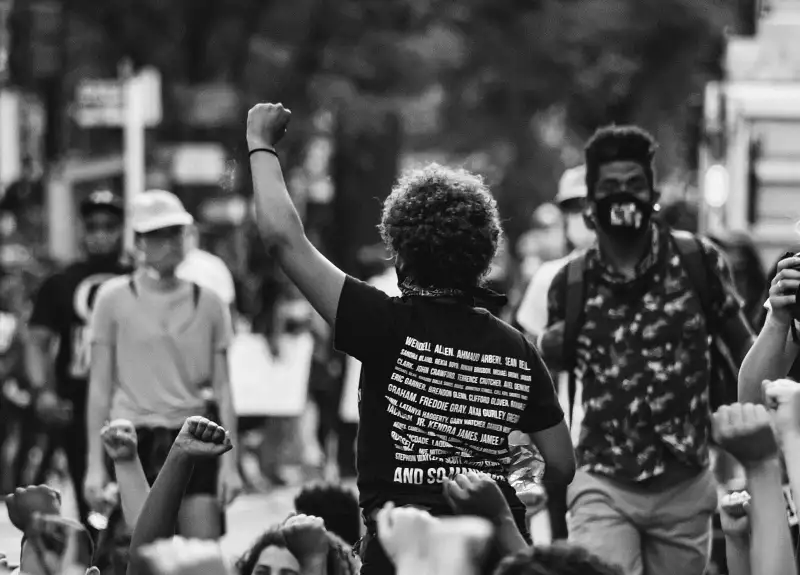Table of Contents
- What Are Informal Social Controls?
- Mechanisms of Informal Social Control
- Informal Social Controls and Social Order
- The Sociological Significance of Informal Control
- Informal vs. Formal Social Control
- Informal Control in Different Social Contexts
- Limitations and Critiques of Informal Social Control
- Conclusion
In every society, human behavior is guided by a complex and multilayered set of norms, values, traditions, and expectations. These elements shape not only individual conduct but also collective social life. While formal laws, institutional rules, and legal regulations play a vital role in maintaining order and sanctioning deviance, much of human behavior is regulated in informal, often unconscious ways. These mechanisms, known as informal social controls, are enacted through daily social interactions among individuals, families, peer groups, communities, and cultural institutions.
Informal social controls are the invisible threads that weave the fabric of everyday life, subtly steering conduct in line with shared norms without invoking official authority. They are embedded in interpersonal communication, gestures, social cues, and the consequences of conformity or deviance. Understanding how these informal controls operate is essential to grasp how societies maintain cohesion, reproduce dominant values, and negotiate social change.
What Are Informal Social Controls?
Informal social controls refer to the non-institutionalized mechanisms by which societies influence and regulate behavior. These controls arise spontaneously and organically within social relationships, and they are sustained through norms, cultural expectations, and emotional investments. They do not rely on codified laws or formal enforcement bodies; rather, they are enforced through social pressure, moral judgment, and communal surveillance.
Key characteristics of informal social control include:
- They are unwritten, tacit, and culturally relative
- They rely on interpersonal relationships rather than formal authority
- They operate continuously in everyday life
- They are enforced through emotional responses such as guilt, shame, pride, or embarrassment
Informal controls are indispensable for socialization—the lifelong process by which individuals learn and internalize the values, beliefs, and behaviors appropriate to their society. Through informal socialization, individuals come to “self-police,” aligning their actions with societal expectations.
Mechanisms of Informal Social Control
Social Norms and Expectations
At the heart of informal social control are social norms, which are the shared rules or guidelines that prescribe acceptable behavior. These norms are learned through cultural participation and are enforced through social approval or disapproval.
Examples include:
- Avoiding talking loudly in a library
- Greeting neighbors in a communal setting
- Dressing according to social expectations at formal events
Norms operate at different levels—folkways (everyday customs), mores (moral norms), and taboos (profoundly prohibited behaviors). Violating these norms elicits varying degrees of social response, from a disapproving glance to complete ostracism.
Sanctions and Social Reactions
Sanctions are the social responses to behavior that affirm or discredit conformity. These responses can be positive or negative and are crucial to the enforcement of informal control.
Positive informal sanctions include:
- Compliments and praise
- Warm social acceptance
- Invitations to social events
Negative informal sanctions include:
- Sarcasm or ridicule
- Mockery and shaming
- Gossip and rumor-spreading
- Passive aggression or social exclusion
The potency of informal sanctions lies in the desire for social inclusion and the fear of rejection. In many cases, individuals modify their behavior preemptively to avoid disapproval.
Socialization
Informal social control is embedded in the broader process of socialization, through which individuals learn to navigate their social environment. Socialization happens through interaction with various social agents, including:
- Family: The primary source of early socialization, shaping fundamental behaviors, moral judgments, and emotional responses.
- Peers: Peer groups reinforce conformity during adolescence and adulthood, often intensifying pressure to adopt group norms.
- Religion: Religious institutions guide behavior by offering moral frameworks and community accountability.
- Mass Media: While not always personal, media content implicitly sets behavioral expectations and reinforces cultural values.
Each of these agents contributes to the internalization of social expectations and the ongoing monitoring of self and others.
Gossip and Community Surveillance
Gossip is often viewed pejoratively, but from a sociological perspective, it functions as a key regulatory tool. By disseminating information about a person’s conduct, gossip serves to reinforce community norms. Those who deviate are made visible and held accountable by the collective.
Similarly, informal surveillance involves the monitoring of behavior by community members. Even the perception of being watched—what Erving Goffman would relate to the “presentation of self in everyday life”—can exert significant influence on individual behavior.
Informal Social Controls and Social Order
Informal controls are indispensable in the creation and preservation of social order. They guide individuals to act in ways that are predictable, coordinated, and aligned with collective goals. Most social interactions, even in complex modern societies, proceed smoothly not because of legal enforcement but because people conform to expected norms.
Factors enhancing the effectiveness of informal controls include:
- Strong communal ties: When individuals have vested emotional connections, conformity increases.
- Shared moral frameworks: Homogeneous value systems provide a clear reference for expected behavior.
- Frequent interaction: Regular social engagement increases opportunities for reinforcement or correction.
- High visibility: When actions are observable by others, social accountability is heightened.
The Sociological Significance of Informal Control
Get the full article AD FREE. Join now for full access to all premium articles.
View Plans & Subscribe Already a member? Log in.





